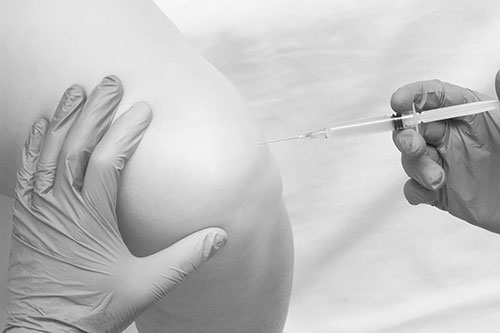- Crushes Blog
- Testimonials
- Contact Us
- To schedule an appointment: 01277 375955
- 501, Ongar Rd, Pilgrims Hatch, Brentwood, Essex, CM15 9JP [See Map]
- E: crushesmanorclinic@gmail.com

Injection Therapy
25th June 2020

If you have browsed the Crushes Manor clinic website, you’ll probably have noticed that we’ve started to offer injection therapy treatments. Some of you may be wondering why a sports physiotherapy clinic is offering these services and what role they play in physiotherapy. This Blog hopes to shed some light on this.
http://crushesmanorclinic.co.uk/injection-therapy.html
Physiotherapists, by virtue of their expertise in musculoskeletal conditions, are perfectly placed to deliver and identify instances where soft tissue and joint injections may or may not be helpful.
Many of the common conditions seen in private physiotherapy clinics – such as osteoarthritis of the knee, ankle, shoulder or thumb; rotator cuff injuries; tennis or golfer’s elbow; carpal tunnel syndrome; bursitis pain around the region of the hip; plantar fasciitis; or trigger fingers – can be treated initially with physiotherapy. The list of the conditions is not exhaustive and it may be useful to speak to a physiotherapist to see if your condition is suitable for injection therapy.
Physiotherapy usually involves exercises and a loading strengthening programme. In the majority of cases, physiotherapy alone will be sufficient to help improve mobility, function and of course, reduce pain. However, sometimes the condition itself causes too much pain in the initial stages to allow exercises to commence. I’m sure many of you will have experienced sudden, severe pain that prevents you from moving, e.g. shoulder pain due to rotator cuff issues or foot pain due to plantar fasciitis. If the pain is due to inflammation and is preventing your rehab, then injection therapy can serve as a useful treatment tool to help reduce pain so exercises can begin. For all the conditions listed above, it is advisable to start with exercises; injections are only useful if the pain is very severe, affecting movement and restricting rehabilitation.

In the next blog, I will discuss in more detail why injections are helpful, and talk about the benefits and risks associated with them.
